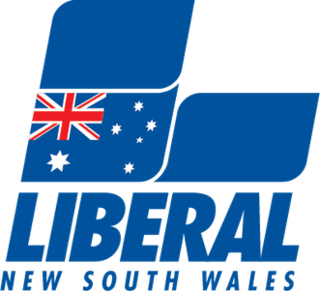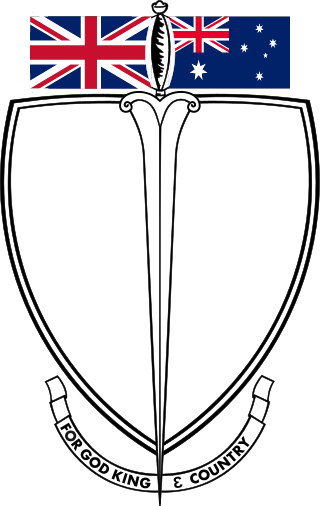
The Australian Democrats is a centrist political party in Australia. Founded in 1977 from a merger of the Australia Party and the New Liberal Movement, both of which were descended from Liberal Party splinter groups, it was Australia's largest minor party from its formation in 1977 through to 2004 and frequently held the balance of power in the Senate during that time.

The Australia Party was a minor centrist political party in Australia from 1969 to 1986. It was most influential in the late 1960s and early 1970s.

Andrew John Julian Bartlett is an Australian politician, social worker, academic, and social campaigner who served as a Senator for Queensland from 1997 to 2008 and from 2017 to 2018. He represented the Australian Democrats in his first stint in the Senate, including as party leader from 2002 to 2004 and deputy leader from 2004 to 2008. In November 2017, he returned to the Senate as a member of the Australian Greens, replacing Larissa Waters after her disqualification during the parliamentary eligibility crisis. He resigned from the Senate in August 2018 in an unsuccessful attempt to win the House of Representatives seat of Brisbane, allowing Waters to fill his seat in advance of the 2019 election.

The Australia First Party (AFP), officially known as the Australia First Party (NSW) Incorporated, is an Australian nationalist political party founded in 1996 by Graeme Campbell, a former member of the Australian Labor Party. The policies of the party have been described as nationalist, anti-multicultural and economically protectionist, advocating for strict immigration controls, the prioritization of Australian citizens in employment, and the promotion of Australian culture and values. The party's logo includes the Southern Cross of the Eureka Flag.

The Shooters, Fishers and Farmers Party (SFF) is a conservative Australian political party. It primarily advocates for increased funding and services for rural and regional Australia, protecting the right to farm, enhancing commercial and recreational fishing, tougher sentencing for illegal firearm trade and usage, and relaxing gun control for law abiding citizens.

The New South Wales Liberal Party, officially called The Liberal Party of Australia, New South Wales Division, and colloquially known as the NSW Liberals, is the state division of the Liberal Party of Australia in New South Wales. The party is currently in Opposition in New South Wales in a coalition with the National Party. The party is part of the federal Liberal Party.
Karin Nicole Sowada is an Australian archaeologist and former politician. She served two years as an Australian Democrats senator for New South Wales between 1991 and 1993. In 1998, she was a republican delegate to the Constitutional Convention. From 1996 to 2005, she was the assistant curator of the Nicholson Museum at the University of Sydney. From 2008 to 2015, she was chief executive officer of the Anglican Deaconess Institution Sydney.
Australians Against Further Immigration (AAFI) was an Australian far-right political party founded by radiologist Dr. Rodney Spencer and his wife Robyn, the parents of actor Jesse Spencer. The party described itself as "eco-nationalist", was opposed to mass immigration and aimed for zero net migration. The party was founded in 1989, registered in 1990, and ceased to exist in 2008.

The Libertarian Party (LP), formerly known as the Liberal Democratic Party (LDP), is an Australian political party founded in Canberra in 2001. The party espouses smaller government and supports policies that are based on classical liberal, libertarian principles, such as lower taxes, opposing restrictions on civil liberties, decentralisation, uranium mining, and the relaxation of smoking laws.
David Bernard Vigor was an Australian politician. He was a member of the Australian Senate, representing the Australian Democrats and the Unite Australia Party.
The Liberal Democratic Party (LDP) was an Australian breakaway political party of the United Australia Party that contested the 1943 federal election and the 1944 New South Wales state election. Formed in 1943, it was replaced by the New South Wales division of the Liberal Party of Australia in January 1945.
John Royston Siddons was an Australian politician. He was a businessman and the executive chairman of Siddons Industries Ltd. before entering politics.
This article provides information on candidates who stood for the 1987 Australian federal election. The election was held on 11 July 1987.
The Democratic Party was a short-lived, urban, conservative political party which was active in New South Wales, Australia between November 1943 and 1945. The Democratic Party was formed in November 1943 by the union of the United Australia Party (UAP) in New South Wales and the Commonwealth Party. It was one of the main conservative parties in New South Wales and contested the 1944 state election as a coalition with Country Party.

The 1944 New South Wales state election was held on 27 May 1944. It was conducted in single member constituencies with compulsory preferential voting and was held on boundaries created at a 1940 redistribution. The election was for all of the 90 seats in the Legislative Assembly.

The Libertarian Party of Australia was an Australian political party based in South Australia. It was formed as a result of a split in the Workers Party over the adoption of the new name "Progress Party".

The United Australia Party (UAP), formerly known as Clive Palmer's United Australia Party and the Palmer United Party (PUP), is an Australian political party formed by mining magnate Clive Palmer in April 2013. The party was deregistered by the Australian Electoral Commission in 2017, revived and re-registered in 2018, and voluntarily deregistered in 2022. The party fielded candidates in all 150 House of Representatives seats at the 2013 federal election. Palmer, the party's leader, was elected to the Division of Fairfax and it reached a peak of three senators following the rerun of the Western Australian senate election in 2014. When the party was revived under its original name in 2018, it was represented by ex-One Nation senator Brian Burston in the federal parliament.

The Centre Party, or the Centre Reform Group, and occasionally referred to as the Centre Movement, was a short-lived extreme-right political party that operated in the Australian state of New South Wales. Founded in December 1933, the party's leader and most prominent figure was Eric Campbell, the leader of the paramilitary New Guard movement. That organisation had been established to oppose what its members perceived as the socialist tendencies of Jack Lang, the Premier of New South Wales, but declined following Lang's dismissal in early 1932. The party, unlike most fascist-oriented parties in Europe, acted as a wing of its more prominent paramilitary arm.
Ralph Emmanuel Didier "Deej" Babet is an Australian politician and a member of the United Australia Party, elected to represent Victoria in the Australian Senate at the 2022 Australian federal election and commencing his six-year term on 1 July.
Carr, A. Psephos Australian Electoral Archive. Accessed 21 May 2006.
Frail, R. (1986), "Siddons has a party, but no starters", Sydney Morning Herald, p. 14, 4 December 1986.
Hewett, T. (1987) "Fringe groups, independents snap at the big parties' heels", Sydney Morning Herald, p. 4, 29 May 1987.











